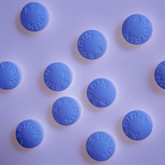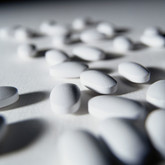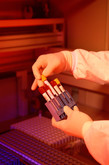Generics
Is the quality of generic medicines under pressure?
“You get what you pay for” runs the old adage, and concerns are being expressed that a number of firms providing clopidogrel in Europe have all sourced the active ingredient from the same Indian firm, Glochem Industries Ltd, which has failed a quality inspection.
Financial incentives to prescribe cheaper medicinal products
On 22 April 2010, the Court of Justice of the EU (ECJ) ruled that public authorities may offer financial incentives encouraging doctors to prescribe cheaper medicinal products. Adding that “those authorities are required, first, to ensure that the incentive scheme is based on non-discriminatory objective criteria and, second, to make public the therapeutic evaluations relating to the scheme”. This is good news for the generics sector, as this can only lead to increased sales of cheaper generic medicines.
EMA wants recall of Acino’s generic clopidogrel with active substance of Indian Glochem
The European Medicines Agency (EMA)’s Committee for Medicinal Products for Human Use (CHMP) recommended the recall of all batches of eight centrally-authorised generic clopidogrel-containing medicines, for which the active substance was manufactured by Glochem Industries Ltd in its factory in Visakhapatnam, India. The medicines concerned are Clopidogrel A1 Pharma, Clopidogrel Acino, Clopidogrel Acino Pharma, Clopidogrel Acino Pharma GmbH, Clopidogrel Hexal, Clopidogrel Ratiopharm, Clopidogrel Ratiopharm GmbH and Clopidogrel Sandoz. The Marketing Authorisation Holder of all these medicines is Acino Pharma GmbH.
Big shifts in generics shares due to Dutch preference policy
The percentage of generic prescribing in The Netherlands increased in 2009 from 56.3– 57.1% according to the Dutch Stichting Farmaceutische Kengetallen (SFK), as published in Pharmaceutisch Weekblad of 12 March 2010.
Pay-for-delay ban dropped from US healthcare reform bill
The pay-for-delay ban amendment has been dropped from part of the US healthcare reform bill because of concerns it would not pass muster with congressional rules, according to a spokeswoman for US Senator Ms Herb Kohl, a Wisconsin Democrat who chairs the Special Committee on Aging, which held a hearing on drug prices on 18 March 2010, as reported by Pharmalot.
Teva with ratiopharm market leader in European generics
On 18 March 2010 Teva announced that it has entered into a definitive agreement to acquire ratiopharm, Germany's second largest generics producer and the sixth largest generic drug company worldwide, for an enterprise value of Euros 3.625 billion. The transaction is subject to certain conditions including relevant regulatory approvals. On a pro forma basis, the combined company would have had 2009 revenues of US$16.2 billion. Teva expects to complete the transaction by year-end 2010.
Generic substitution of cyclosporin sometimes undesired
The bio-equivalence criteria of the Dutch Medicines Evaluation Board (CBG-MEB) offer insufficient guarantee for a safe substitution of generic medicines in transplantation medicine, argue Internist-Nephrologist/Clinical Pharmacologist Teun van Gelder of the Erasmus MC and Professor of Surgery Robert Porte of the University of Groningen –both members of the board of the Nederlandse Transplantatie Vereniging (NTV) – in Pharmaceutisch Weekblad of 29 January 2010.
FDA adds Boxed Warning to clopidogrel label: drug less effective in poor metabolizers with CYP2C19 gene variant
Sanofi-aventis and Bristol-Myers Squibb announced on 12 March 2010 revisions to the US prescribing information for its anti-blood clotting drug Plavix (clopidogrel bisulfate).
AstraZeneca signs branded-generics deal with Torrent to boost emerging-markets presence
AstraZeneca announced on 11 March 2010 a license and supply agreement with Torrent Pharmaceuticals. Torrent will supply to AstraZeneca a portfolio of generic medicines for which Torrent already has licenses in a range of countries. Working in partnership with Torrent, AstraZeneca intends to brand and market these products in many of its emerging markets, where it already has a strong commercial footprint.
India claims to be world leader in generics exports
The Indian government has said that India ranks top in the world in exporting generic medicines, with a worth of 50,000 billion rupees a year. The country is now exporting to more than 200 nations worldwide, and exports totalled around US$8 billion in 2008-9, the majority going to the US and Europe, according to ‘Union Minister of State for Chemicals and Fertilisers Srikanta Jena’. ‘The industry’s achievements could create more than 500,000 high-value jobs in India and provide the nation with low-cost treatments for life-threatening conditions such as malaria and tuberculosis’, he added.











